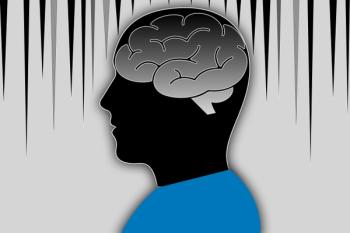
- Psychiatric Times Vol 23 No 11
- Volume 23
- Issue 11
Book Review: Principles and Practice of Psychopharmacotherapy, 4th Edition
A new edition of an established text is an opportunity for its authors and editors to review new information and prune what is no longer useful. The 4th edition of Principles and Practice of Psychopharmacotherapy is more successful at the former than it is at the latter.
by Philip G. Janicak, John M. Davis, Sheldon H. Preskorn, Frank J. Ayd Jr, Mani N. Pavuluri, and Stephen R. Marder;Philadelphia: Lippincott Williams & Wilkins, 2006718 pages • $149.00 (hardcover)
Reviewed by Chester Pearlman, MD
A new edition of an established text is an opportunity for its authors and editors to review new information and prune what is no longer useful. The 4th edition of Principles and Practice of Psychopharmacotherapy is more successful at the former than it is at the latter. I was first puzzled and then irritated by the constant presentation of data from studies done 20 to 30 years ago without the mention of methodologic limitations that prevent generalization to current practice. The mingling of older data with recent data makes it harder to evaluate the conclusions in this book.
There is a niche for a book with more advanced material than in introductory texts but less extensive than the The American Psychiatric Publishing Textbook of Psychopharmacology (2003), for example. On the other hand, information in that book is presented in an accessible manner, whereas in this work, discussions involving neuroscience and statistics often lack adequate preparatory material. There are several tables with summaries of research on specific topics and practice algorithms, but there is generally little connection made in the book between the vagaries of clinical research and the wise advice about clinical management based on the authors' experience.
A new chapter on pharmacotherapy in early life--including the childbearing years, pregnancy, and the perinatal period--is a good review with updated material. The use of electroconvulsive therapy (ECT) in medication-refractory conditions is thoroughly discussed, but some of the studies are outdated. For example, some of the radiographic studies in the suggested workup and use of caffeine for seizure prolongation are not current practice.
However, the review of transcranial magnetic stimulation for depression is helpful, since FDA approval appears imminent and this treatment will have an increasing role as a less invasive alternative to ECT.
Finally, there are some editorial glitches, such as the placement of a glossary of pharmacokinetic terms at the end of the book that was actually noted to be at the end of the chapter on that subject and inaccurate citation numbers in the text. The discussion of neuroleptic malignant syndrome (NMS) does not acknowledge the higher incidence in affective disorders and catatonic states and does not mention that the main indication for ECT in NMS is for concurrent catatonia refractory to benzodiazepines. The review of hypnotic agents does not adequately consider chronic forms of sleep disturbance, especially sleep maintenance problems. Failure to discuss clinical use of trazodone (Desyrel) and dismissing it by referencing 2 biased reviews suggests deficient immunity to big pharma influence.
Dr Pearlman is clinical professor of psychiatry at Boston University School of Medicine and psychiatric consultant at Beth Israel Deaconess Medical Center in Boston.
Articles in this issue
over 19 years ago
Treatment-Resistant Anxiety Disorders: Neurotrophic Perspectivesover 19 years ago
Neurotransmitters, Pharmacologic Synergy, and Clinical Strategiesover 19 years ago
Augmentation Strategies in Treatment-Resistant Depressionover 19 years ago
Pathology and Management of Treatment Resistance in Bipolar Disorderover 19 years ago
Book Review: Pediatric Neuropsychiatryover 19 years ago
BBP from the GGBover 19 years ago
Obituaryover 19 years ago
Better Tools Needed to Measure Treatment OutcomeNewsletter
Receive trusted psychiatric news, expert analysis, and clinical insights — subscribe today to support your practice and your patients.







